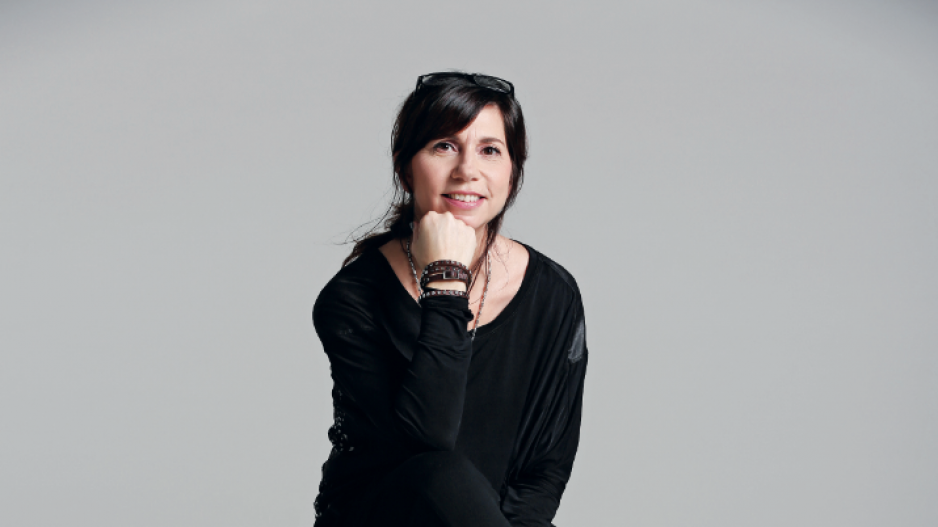The co-founder of a Vancouver-based independent fashion house that has quadrupled its business in China in the last few years said China-Canada tensions hang like a dark cloud over the heads of Canadian companies operating in China.
But RozeMerie Cuevas, who co-founded Jac by Jacqueline Conoir and saw the company expand exponentially after entering the Chinese market four years ago, said the brand has so far escaped the consumer anger targeting other Canadian businesses such as Canada Goose Holdings Inc. which had to delay the opening of a Beijing store this winter due to the growing backlash.
“What I can say is that the current situation is unfortunate for everyone involved, and I think everyone would like to see this go away very quickly,” said Cuevas, whose company now operates a factory in China and has 110 boutique stores across the country, 30 per cent of which are owned and operated directly by the brand.
“I can’t say what will happen. Never say never; things change daily in the marketplace regardless of what industry you are in…. But as of now, our businesses have not been impacted by the situation, and we hope our customers will continue to support us.”
Canada Goose was forced to scuttle plans to open its Beijing flagship store in December after Chinese media ran stories calling for the boycott of Canadian brands. The stories were in response to the December 1 arrest of Huawei Technologies Co. Ltd. CFO Meng Wanzhou in Vancouver. In addition, at least three Canadians have been detained by Beijing since Meng’s arrest.
After news of the arrest broke on December 5, Canada Goose stocks slid from $91.33 on the Toronto Stock Exchange to $62.15 on Dec. 20 – losing close to a third of their value. Canadian retail industry observers say other brands that incorporate Canadian themes and have exposure to mainland China, such as Roots, may also be affected.
For Cuevas, Jac by Jacqueline Conoir’s mixed international profile and its strong uptake by its target audience of “confident, modern women” have meant the brand continues to be embraced by Chinese consumers, especially women in urban areas.
“I think a lot of that is because we are an international brand, and Chinese consumer tastes are becoming more sophisticated,” Cuevas said from her office in Hangzhou, China. “Our collection basically falls right into the right price point, the right value, the right design that consumers are interested in … and many of our franchise owners are Chinese women who have been successful growing to operate multiple stores, so the brand is making local women who are putting their trust into the brand successful as well.”
Jac by Jacqueline Conoir employs as many as 550 people in China, including at its head office, factory and retail outlets. That compares with an original staff of 15 in Vancouver’s 5,000-square-foot studio. Cuevas noted, however, that the number isn’t directly comparable because one of the key reasons the brand went into China was Vancouver’s lack of available industrial space for manufacturing, and Jac wasn’t able to hire as many people in Canada as it did in China because of that limitation.
Chinese academics with Canadian links agree with Cuevas that the public anger over Meng’s arrest has not reached a level where brands beyond Canada Goose are affected. Bo Chen, associate department chair of Shanghai University of Finance and Economics’ School of International Business Administration, said Canadians should not underestimate Chinese consumers’ understanding of the situation.
“For the moment, I don’t think the Chinese are angry enough to boycott Canadian unless Ms. Meng were to be extradited to the U.S.,” said Chen, who received his PhD from Simon Fraser University. “Many Chinese who are/were working or studying in Canada, including myself, would at least have well-exposed views to show their good understanding that Canada is indeed a passive player in this accident.”
But Chen also said there is no doubt that the Chinese public views the U.S. involvement in the case as “ridiculous,” and that the onus is on Canada to make clear that Meng’s court hearings are following pure judicial procedure.
“I totally understand that Canada has an independent jurisdiction system,” he said. “However, it does not mean Canadian government can do nothing to control the emerging damage. At least Canada can explain to the media – especially to those with Chinese background – in as much detail as possible … the reasons of the arrest, the ongoing legal process and what Canadian government can do and cannot do.”
Yves Tiberghien, director emeritus of the University of British Columbia’s Institute of Asian Research, agreed the government can take steps to protect Canadian businesses operating in China.
“If this is perceived as being unfair and arbitrary, which is the initial Chinese take, then there is potential for damage,” Tiberghien said. “For Canadian companies, it creates high risk and uncertainty; it’s in the Canadian interest to make this as clear, as well-informed and as fair as possible. It has to appear as something that’s purely judicial, that’s universally applied…. It’s dangerous for Canada to have this happen in a vacuum of information.”
Cuevas, who now also works to attract more fashion firms to southeastern China, recently welcomed 13 companies to Hangzhou to find potential partners in the Chinese market. She declined to speculate when asked if Meng’s arrest will chill Canadian interest in coming to China, only noting that the Chinese market has helped Jac so much that it is now looking for a Canadian partner to introduce much of its Chinese-market-tested collection back into Canada.
“We act as a bridge for other Canadian companies to come to China, because we’ve had so much success,” Cuevas said. “So our hope is that people will continue to come, and business will continue as usual.”



